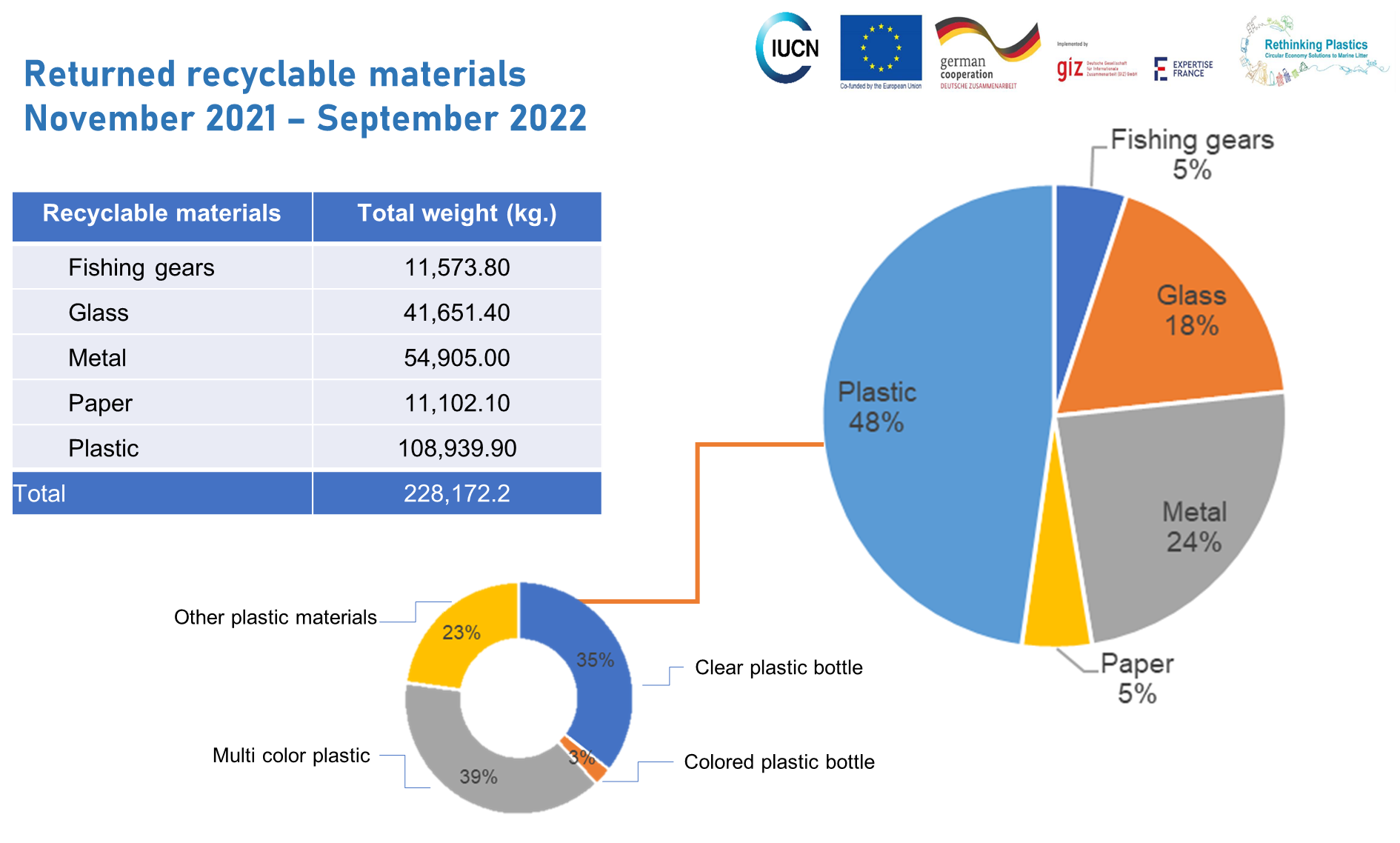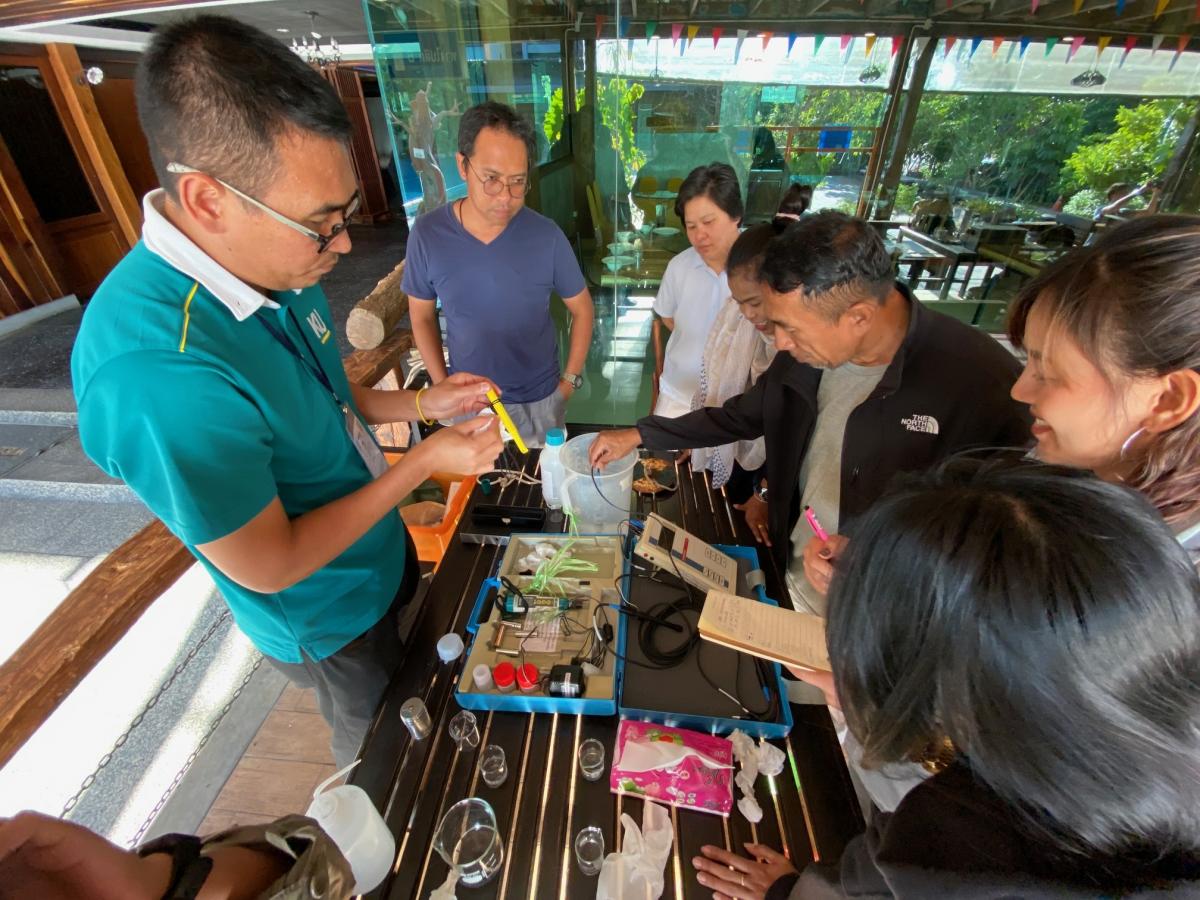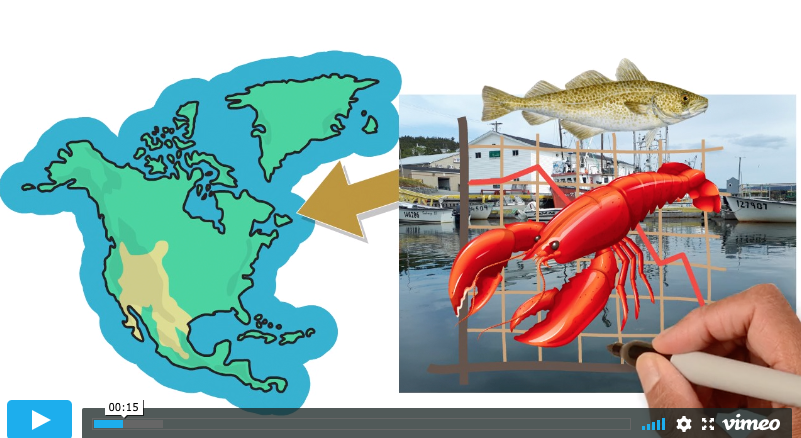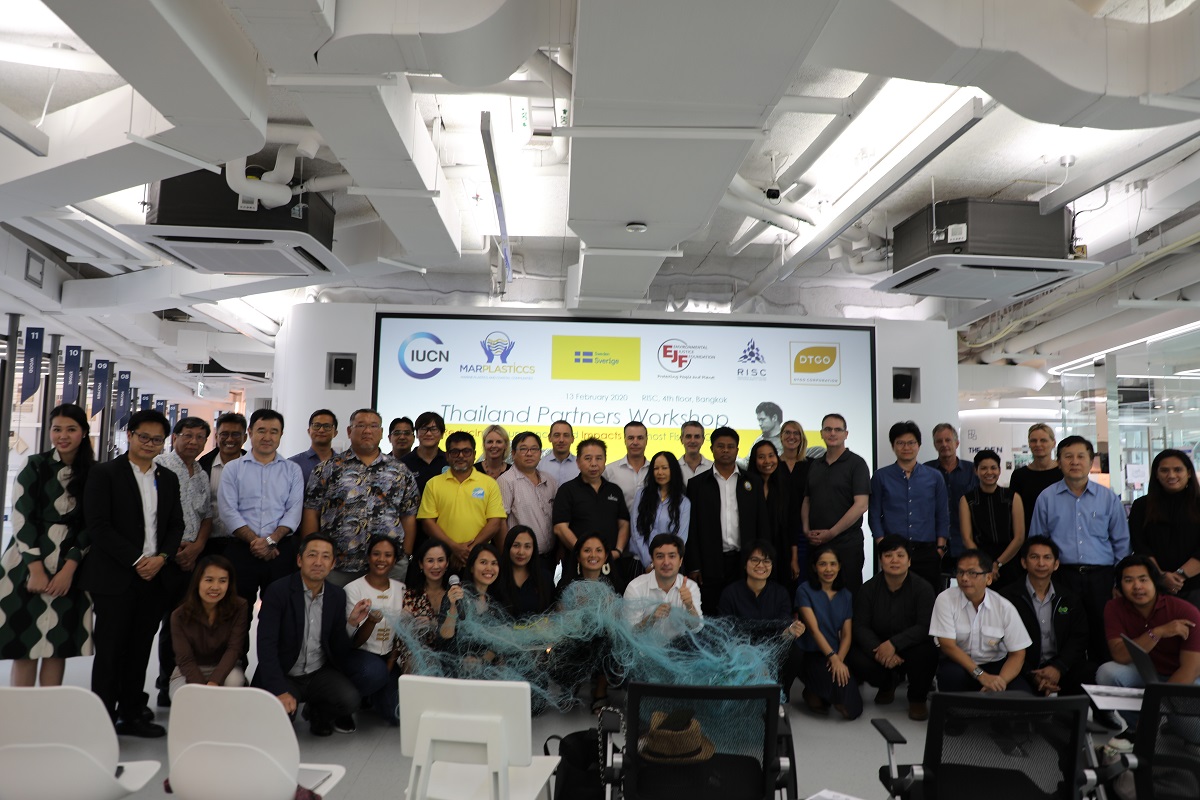A scenario analysis of Koh Libong municipal waste management practices and policies
Since February 2021 until October 2022, IUCN Thailand has been working with partners such as SAVE Andaman Network to implement the project “Enhancing circular economy model at the local level and improving municipal waste management practices and policies”, with support from the European Union (EU) and GIZ Thailand.
The project aims to replicate and develop the circular economy model and implement the 3Rs Strategy to improve waste management at the household and municipal level in Thailand’s coastal communities in Koh Libong, Trang Province, Thailand.
Results to date:
Between November 2021 and September 2022, over 220,000 kilograms of recyclable materials were collected by community members and partners, which included 48% of plastic materials that were returned to appropriate waste management facilities at the provincial level.
 Photo: Returned recyclable materials (November 2021 - September 2022). © IUCN Thailand
Photo: Returned recyclable materials (November 2021 - September 2022). © IUCN Thailand
We can be the role model for island waste management in Thailand! - Miss Ramida Sarasit, a local community member in Libong sub-district, Trang Province, Thailand
On 18th October 2022, IUCN Thailand organised a workshop in Koh Libong, Trang Province to review the project results after a year of implementation, collect lessons learnt and gain feedback from key stakeholders. A total of 53 participants joined the workshop, including representatives from 8 villages, the village headmen, and representatives from governmental authorities, including Hat Chao Mai National Park, Subdistrict Administrative Organization (SAO), and the Office of Natural Resources and Environment (PONRE).
During the workshop, the participants in each group demonstrated a positive attitude towards waste management and identified key areas of action required for effective waste management; a) Policy on waste management and action plan on community-level waste management; b) Recyclable materials collection and small buyers in the community; c) Actions and behavioral changes of the community members on waste management; and d) Capacity building and awareness of community members on waste management.
 Photo: Lessons learned final workshop in Koh Libong, Trang Province, Thailand. © IUCN Thailand
Photo: Lessons learned final workshop in Koh Libong, Trang Province, Thailand. © IUCN Thailand
Recyclable materials are considered valuable to the community members because it allows them to generate income at the household level. However, local collaboration is not only driven by financial incentives, but by their willingness to improve waste management systems in their community.
The workshop improved the participant’s overall awareness of waste management practices and allowed them to gain a better understanding of key factors required for successful waste management. Additionally, the participants expressed a strong willingness to take action on this issue, by raising awareness and facilitating engagement with stakeholders.
The lessons learned from the workshop will be used to improve multi-stakeholder engagement in enhancing municipal waste management and plastic waste management policies in the target areas, as well as developing a solid waste management action plan at the community and sub-district level in collaboration with private sectors, local authorities and government agencies.
What we have already done is a big move, but we must continue towards achieving our goal - Mr. Anurak Wanmusa, the Deputy Head of Koh Libong SAO
While community working groups at the village and sub-district levels have been established, effective waste management will require the development and implementation of waste management policies and strong engagement from key stakeholders.



